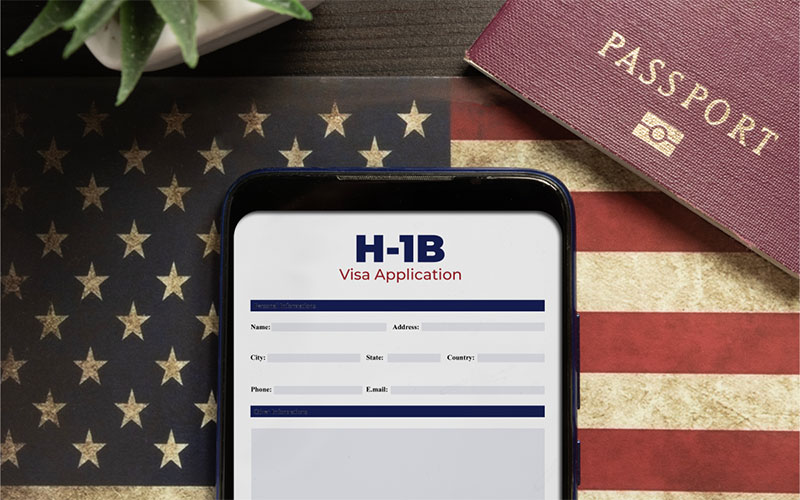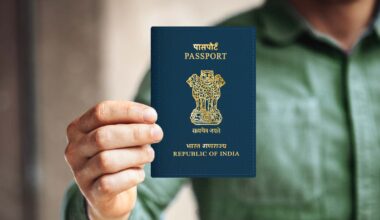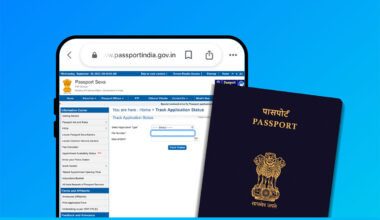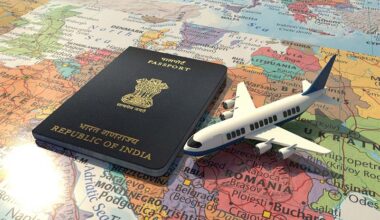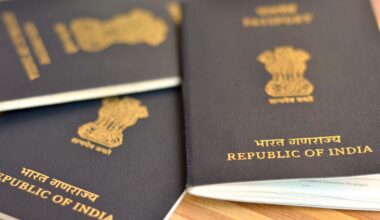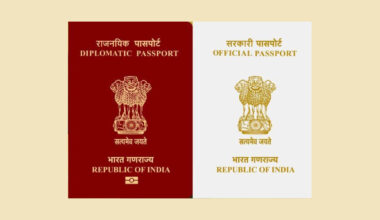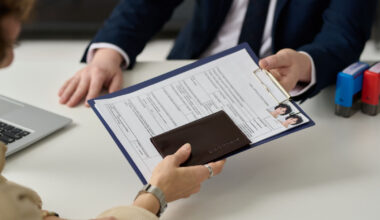The H-1B visa is a non-immigrant visa category in the United States, designed for foreign professionals with specialized skills and expertise to work temporarily in the country. It is a popular visa option for individuals in fields such as information technology, engineering, healthcare, and finance.
Table of Contents Show
To qualify for an H-1B visa, applicants must have a job offer from a U.S. employer who is willing to sponsor their visa. The employer must demonstrate that the position requires a high level of specialized knowledge and that the applicant possesses the necessary qualifications. H-1B visas are typically granted for an initial period of up to three years, with the possibility of extension for an additional three years.
What is H-1B Visa?
The H-1B visa is a temporary work visa category in the United States, specifically designed for foreign professionals with specialized skills. This visa is commonly sought after by individuals in fields like information technology, engineering, healthcare, and finance. To be eligible, applicants need a job offer from a U.S. employer willing to sponsor their visa, showcasing that the position requires specialized knowledge and that the applicant possesses the required qualifications.
H-1B visas are typically granted for an initial period of up to three years, with the option to extend for an additional three years. It serves as a crucial avenue for skilled individuals to contribute their expertise to the U.S. workforce. However, the H-1B program faces annual numerical caps, making the application process competitive.
Understanding the H-1B Visa Cap
If you’re planning to work in the United States with an H-1B visa, here’s what you need to know about the annual visa cap.
- Limited Number of Visas: Each year, there’s a set limit on how many H-1B visas are available. In 2023, this cap is 65,000 visas. However, there are an additional 20,000 visas for those with a master’s degree or higher from a U.S. school. Some employers, like universities and certain nonprofits, are exempt from this cap.
- Registration Process: To apply for an H-1B visa, you must register with the U.S. Citizenship and Immigration Services (USCIS) online. You’ll need to create an account, pay a fee, and provide information about your sponsoring company and yourself. Your attorney or representative can also do this for you.
- Limited Registration Period: The registration window is open for just 14 days each year. If you miss this window and your job isn’t exempt from the cap, you won’t be able to apply for the H-1B visa.
- Check Your Status: After registering, you can check your status in your USCIS account. If you’re represented by an attorney or representative, they can do this for you.
- Possible Status Outcomes: Your status can be one of the following:
- Submitted: Your registration is valid.
- Selected: You can move forward with the H-1B visa application.
- Not Selected: You weren’t chosen for the visa this time.
- Denied: Registering multiple times with the same employer will invalidate all your registrations.
- Invalidated-Failed Payment: If your payment didn’t go through, your registration is invalidated.
- Being Selected: Your registration must be chosen for you to apply for the H-1B visa unless you qualify for an exemption. If you aren’t selected, USCIS will notify you or your representative when the H-1B cap for that year has been reached.
Also Read: Indian Passport: Application, Types, Fees, Processing Time, and More
What Is H1B Visa Eligibility Criteria?
- Job Offer: You must have a job offer from a U.S. employer for a position that requires specialized skills and a bachelor’s degree or higher.
- Educational Qualifications: You should possess a bachelor’s degree or its equivalent in a relevant field. In some cases, professional experience can be substituted for formal education.
- Employer’s Labor Condition Application (LCA): Your employer must file an LCA with the U.S. Department of Labor, certifying that they will pay you the prevailing wage for your position and meet certain labor conditions.
- Occupational Specialty: Your job must fall under a specialty occupation category, typically in fields like technology, engineering, finance, or healthcare.
- H1B Cap: Be aware of the annual H1B visa cap, which limits the number of new H1B visas issued each year. Some employers, like universities or nonprofit research organizations, are exempt from this cap.
- Licensure or Certification: If your profession requires licensure or certification, you must obtain it in the state where you will work.
How to Apply for H1B Visa?
It is not possible for an individual to directly request an H-1B visa. Instead, H-1B visa applications must be initiated by a U.S. employer who sponsors the foreign worker they intend to hire. The sponsoring employer must meet specific requirements and provide the necessary documentation to the United States Citizenship and Immigration Services (USCIS).
The H-1B application period typically starts on April 1st each year and remains open until the available visa quota is filled. It’s important to understand that the sponsors and employers for H-1B visas can change from year to year.
If you’re in a rush to secure your H-1B visa, there is an option for expedited processing called “premium processing.” By paying an extra fee of $1,225, your H-1B petition can be reviewed and approved within 15 days, significantly faster than the regular processing times.
Step 1: Create a USCIS online account.
Step 2: Use the ‘registrant’ account for H-1B registration.
Step 3: Additional information cannot be added until the initial registration period opens, so select “I am an H-1B registrant.”
Step 4: Enter company information when submitting a registration for yourself.
Step 5: If working with a representative, carefully review the company information entered by the representative.
Step 6: Representatives can create an account of the same type or use an existing one, if available.
Step 7: Representatives need to add their law firm or organization information when creating an account.
Documents Required for H1B Visa
| Documents Required for H1B Visa (Outside the U.S.) | Documents Required for H1B Visa (Already in the U.S.) |
|---|---|
| Passport | Copy of biographic and visa pages of your current passport |
| Approval of Labor Certificate | Copy of Form I-94 card |
| Letter of Appointment from your employer | Provide your current U.S. address |
| Company’s Tax Returns | Share your foreign address |
| Letter to the Consular General of the Indian Consulate | Provide your day and evening phone numbers |
| Official Valuation of Your Educational Degrees | Share your email address |
| Postgraduate (PG) Certificate | Copies of previous H1-B approval notices |
| Certificates of Employment and Relieving from Previous Companies | Dates of your previous stay in the U.S. under H1-B status |
| Documented Job Description with the Sponsoring U.S. Company (brief description) | Share your current resume with employment history |
| Current U.S. License or Temporary License | Provide copies of your university or college degree |
| Resume with Supporting Certificates | Include copies of credential evaluations |
| Two Demand Drafts: $45 for Processing Fee and $100 for Issuance Fee | Share your job title with the sponsoring U.S. Company |
| 2-3 Passport-Sized Colored Photographs | Include copies of your current licenses, if applicable |
| For H-4 visa applicants, submit children’s birth certificates and a copy of your marriage certificate | Share your social security number |
| Letter to the Department of Justice | Provide copies of your recent W2 |
| Share copies of your recent pay slips |
Photographic Specifications for H1B Visa
To ensure your visa photo meets the necessary standards, keep the following guidelines in mind:
- Size: The photo should measure 2 inches by 2 inches, providing a clear view of your face.
- Head Position: Position your head in the photo so that it measures between 1 and 1 3/8 inches (22 mm and 35 mm) from chin to crown, approximately 50% to 69% of the photo’s overall height.
- Color and Freshness: The photo should be in color and captured within the last six months to represent your current appearance.
- Background: Opt for a pure white background without shadows to make yourself stand out.
- Facial Expression: Maintain a neutral expression with both eyes open in the photo.
- Attire: Avoid wearing uniforms and ensure that any religious attire worn does not obscure your face or hairline.
- Electronics: Refrain from wearing electronic devices unless necessary for medical reasons.
- Eyeglasses: Only wear eyeglasses if they are a medical necessity, and they should not cause reflections that obscure your eyes.
Fees for H1B visa
| Type of Fee | Payer | Amount in USD |
|---|---|---|
| Attorney Fee | Employer | Variable |
| USCIS Anti-Fraud Fee | Employer | $500 |
| Premium Processing (Optional) | Employer/ applicant | $2,500 |
| Basic Filing Fee (I-129 form) | Employer | $460 |
| Public Law 114 – 113 fee | Employer | $4,000 |
| ACWIA Education & Training Fee | Employer | Business with more than 25 employees: $1,500, Business with less than 25 employees: $750 |
| Registration Fee | Employer | $10 |
What is H1B Visas Validity Period?
The H1B visa offers a specific validity period, which can be extended under certain circumstances. Here are the key details regarding the H1B visa’s validity period:
- Initial Validity: The H1B visa is typically initially valid for a period of three years. This allows the visa holder to work in the United States for the sponsoring employer.
- Extensions: The American Competitiveness in the Twenty-First Century Act (AC21) allows for extensions of the H1B visa beyond the initial three-year period. Extensions can be requested in increments of up to three years, making the total maximum H1B visa validity period six years.
- Permanent Residence Process: If an H1B visa holder is in the process of applying for permanent residency (a green card), they may be eligible for further extensions beyond the six-year limit. These extensions are typically granted in one-year increments. The extensions are contingent upon the progress of the green card application.
- One-Year Time-Out: If an H1B visa holder reaches the end of the sixth year and has not received a green card or an extension, they are required to spend one year outside the United States before becoming eligible for a new H1B visa.
- Dependents (H4 Visa): Dependents of H1B visa holders, such as spouses and unmarried children under the age of 21, can accompany the primary H1B visa holder to the U.S. They are eligible for H4 visas, allowing them to stay in the U.S. as long as the H1B visa is valid. However, H4 visa holders are generally not permitted to work in the United States.
- Education for Dependents: While dependents on H4 visas are not allowed to work, they are allowed to attend schools and educational institutions in the United States.
- H-1B2 Holders: H-1B2 visa holders engaged in work related to defense projects can enjoy an extended stay in the U.S., with a maximum validity period of up to 10 years.
It’s important for H1B visa holders and their dependents to be aware of the visa’s expiration date, eligibility for extensions, and the requirements for obtaining further extensions or permanent residency. Staying informed and planning accordingly is essential for a smooth and legal stay in the United States.


